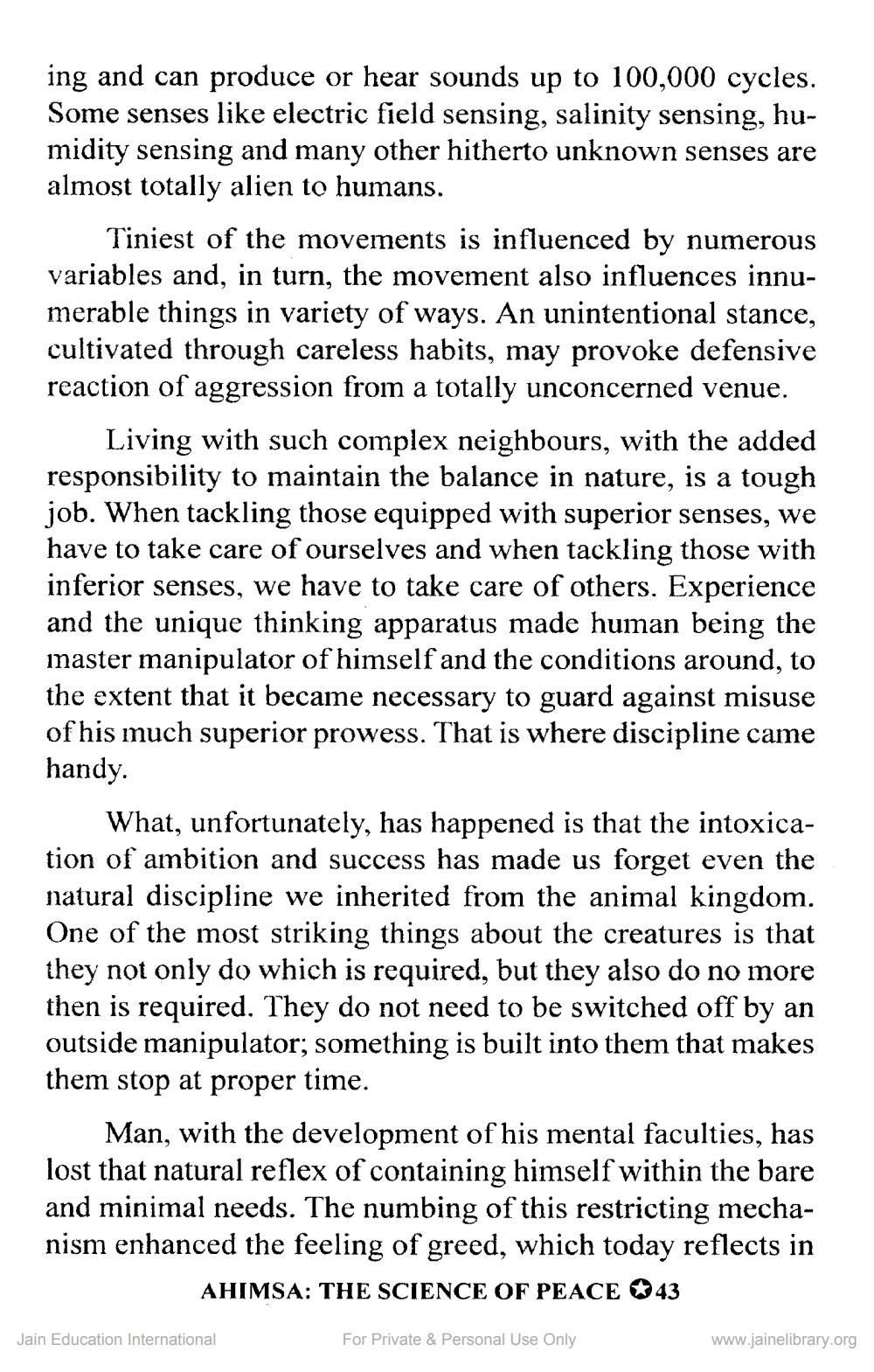________________
ing and can produce or hear sounds up to 100,000 cycles. Some senses like electric field sensing, salinity sensing, humidity sensing and many other hitherto unknown senses are almost totally alien to humans.
Tiniest of the movements is influenced by numerous variables and, in turn, the movement also influences innumerable things in variety of ways. An unintentional stance, cultivated through careless habits, may provoke defensive reaction of aggression from a totally unconcerned venue.
Living with such complex neighbours, with the added responsibility to maintain the balance in nature, is a tough job. When tackling those equipped with superior senses, we have to take care of ourselves and when tackling those with inferior senses, we have to take care of others. Experience and the unique thinking apparatus made human being the master manipulator of himself and the conditions around, to the extent that it became necessary to guard against misuse of his much superior prowess. That is where discipline came handy.
What, unfortunately, has happened is that the intoxication of ambition and success has made us forget even the natural discipline we inherited from the animal kingdom. One of the most striking things about the creatures is that they not only do which is required, but they also do no more then is required. They do not need to be switched off by an outside manipulator; something is built into them that makes them stop at proper time.
Man, with the development of his mental faculties, has lost that natural reflex of containing himself within the bare and minimal needs. The numbing of this restricting mechanism enhanced the feeling of greed, which today reflects in
AHIMSA: THE SCIENCE OF PEACE 43
Jain Education International
For Private & Personal Use Only
www.jainelibrary.org




